Our Companies‘ History
Tradition – Trust – Reliability since more than 100 years
Hundred Years DOSAFA
We can proudly say that our company exists since over 115 years. Since the beginning we have seen a lot of things and overcome various types of problems and therefore, also success. Not only, we survived two world wars, in times of crisis we found ways to still be able to deliver and stay in touch with our partners. We still want to continue and stand for our tradition, that is why we are proud of our history. A golden future needs a harsh past.
Lineage
The transformation of a company from a pure family business to a corporation.
The knowledge of the company has been passed on to family members. You can also say that you grew into the management, until today with present director Horst-Dieter Jankus. The cornerstone to a successful company has begun with the start of his apprenticeship 60 years ago. According to our tradition, he is also teaching his knowledge to the present staff.
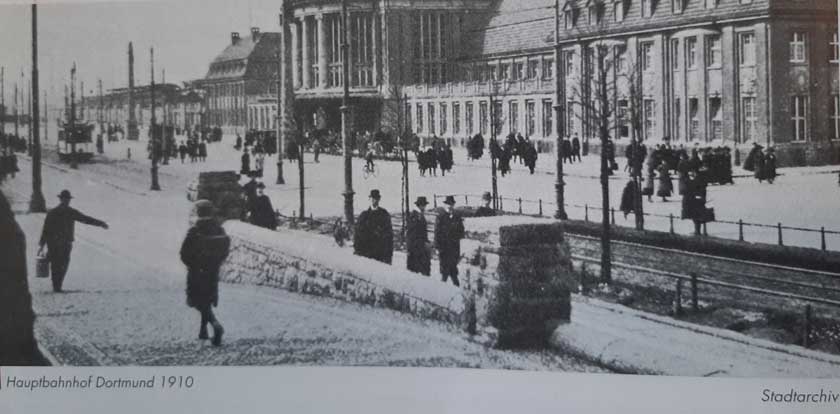
The founder Otto Sticht has been trading and producing sacks already since 1900, but on the 8th of July in 1904 he founded the cornerstone of the company today. At that time, the company benefited primarily from the boom in steel mills, machine factories and mines, but especially from the development of the city of Dortmund into a major industrial city.
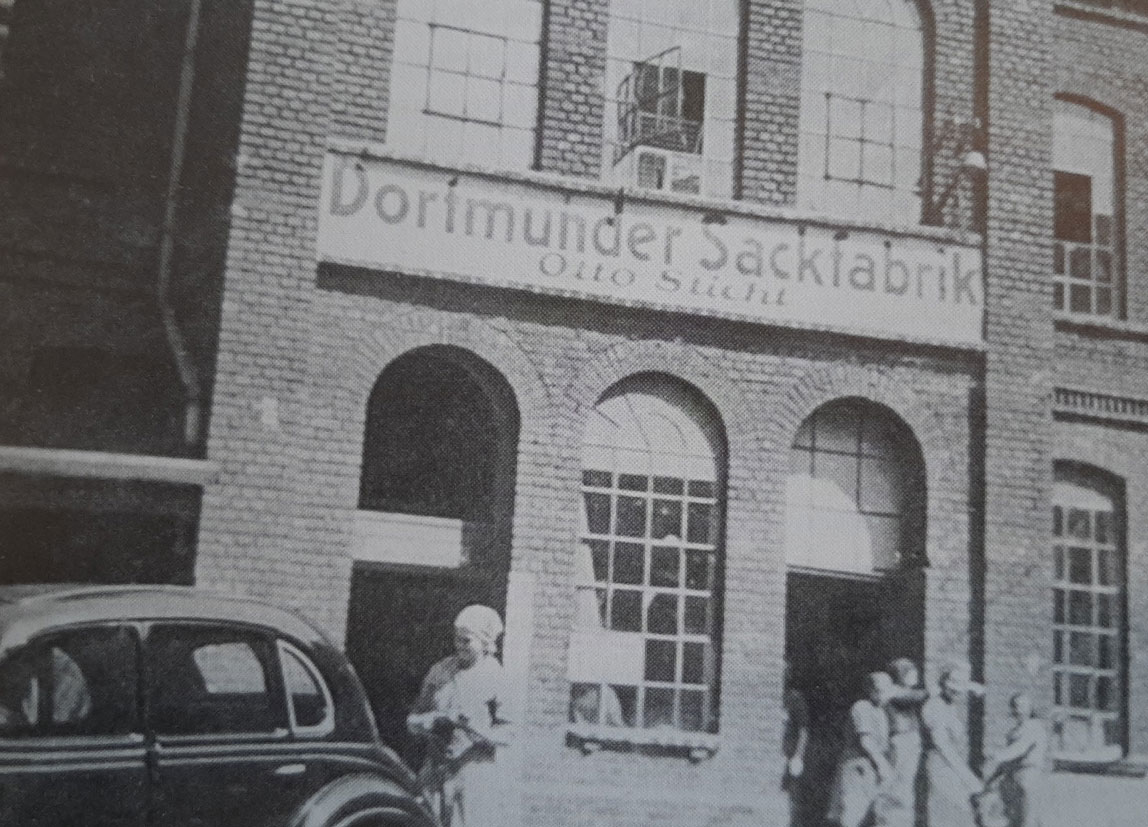
The years 1918/1919 were very successful for the company, not only it was already 15 years, due to adverse circumstances. In 1918 the company entered into the commercial register as “Dortmunder Sackfabrik Otto Sticht” (DOSAFA). Despite the fact of a world war and an ongoing economic crisis after, the Dortmunder Sackfabrik survived it pretty well. One of the reasons why we survived was the fact, that postwar the company cooperated as a “Reichs-Sammelstelle für Sackstoffe” (collection point for sack materials).
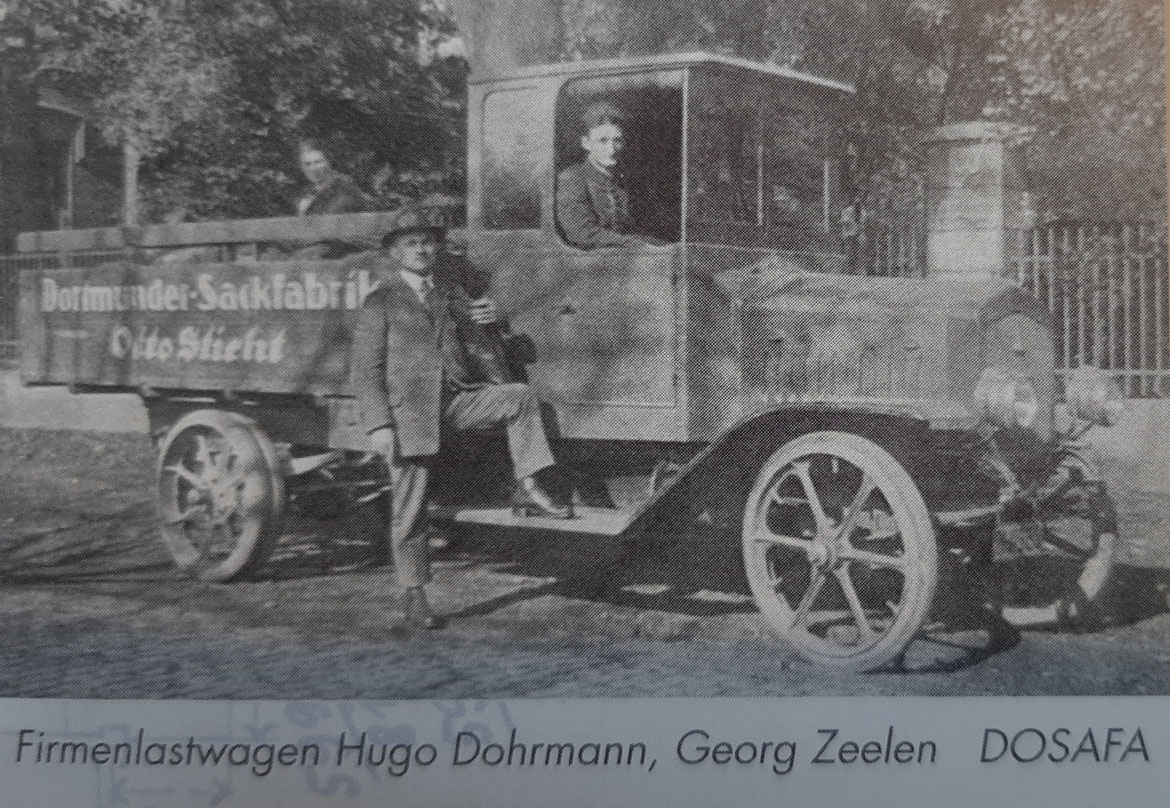
In march 1926, the death of Otto Sticht marked the change of the second generation in the companies’ history. The business was handed over to both of the founders’ daughters, Else Dohrmann and Lydia Brinkmann. Hugo Dohrmann, the husband of Elsa, took over the management. Due to the takeover of family Dohrmann the previous product range of only sacks was expanded including products, such as blankets and tarps.
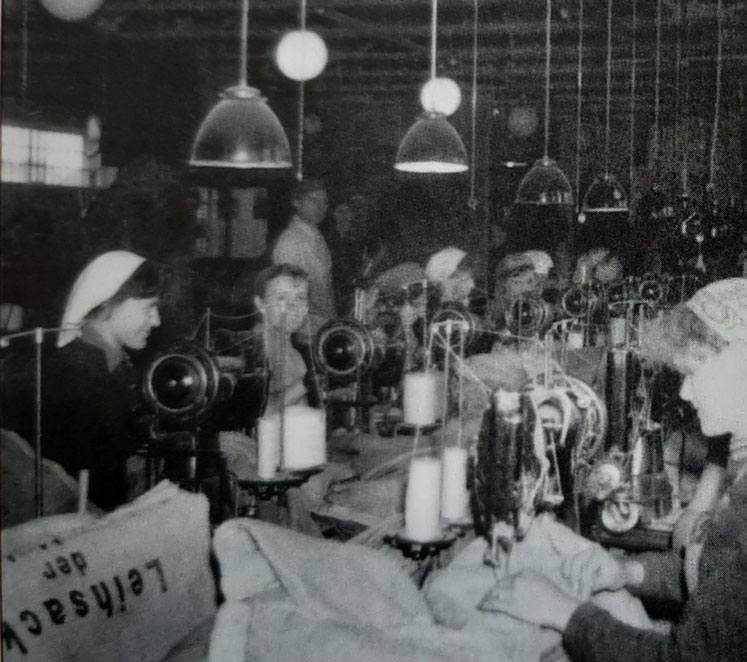
On March 12, 1945 the entire production, which was then located in the so called “Kreuzstraße”, was destroyed completely due to a devastating Allied air raid on the entire city of Dortmund. However, it was possible to start production again shortly after the destruction in an alternative plant in Unna. The production could be expanded, bit by bit until the company was able to resume to a new location on “Semerteichstraße” in Dortmund in 1949.
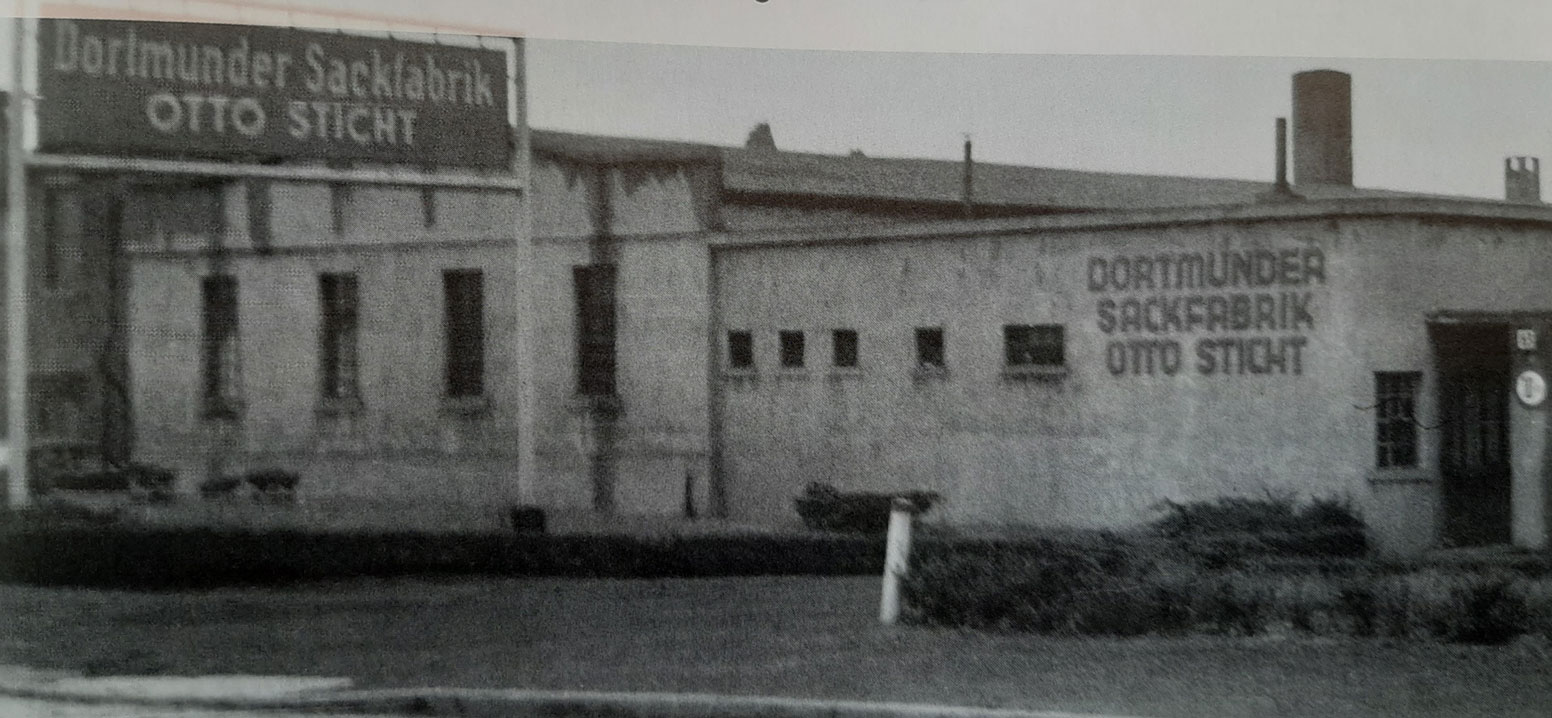
During the 1950s, the main focus was to recover from the devastating aftermath of World War II and getting back on track on the economical site. The company succeeded and benefited overall from the renewed boom in steel industry as well as mining industry. After some time, the entire city was getting into an economic upswing and a positive attitude towards life returned to the city. “We are someone again” was the motto at that time.
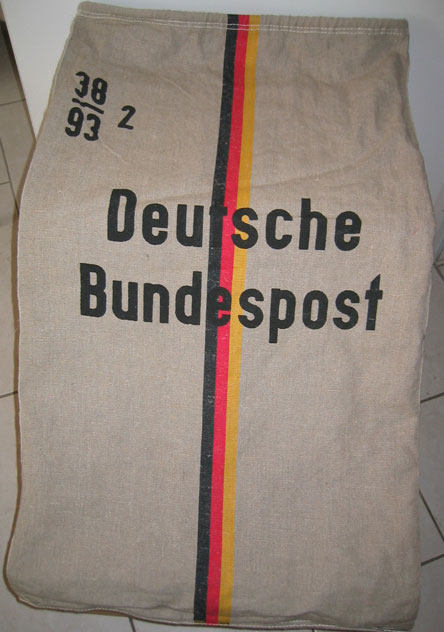
After the death of Ms. Dohrmann in 1961, her son Rolf became the owner of the company. After a very short time of a new director and his death in 1965, the management was taken over by long-time employee and representative Dorothea Hoffmann. Thus the 4th generation of the Dortmund Sack Factory had been initiated. From the mid-1960s onwards, the company started to cooperate together with the Deutsche Bundepost (General Post Office in Germany). The DOSAFA took over the maintenance of postal bags and were able to build a business within this cooperation. At this time the staff was ran by about 60 employees, half of them were immediately entrusted with the maintenance of the postal bags with about 30.000 mail bags per day. – It was one of the most important business in the companies’ history.
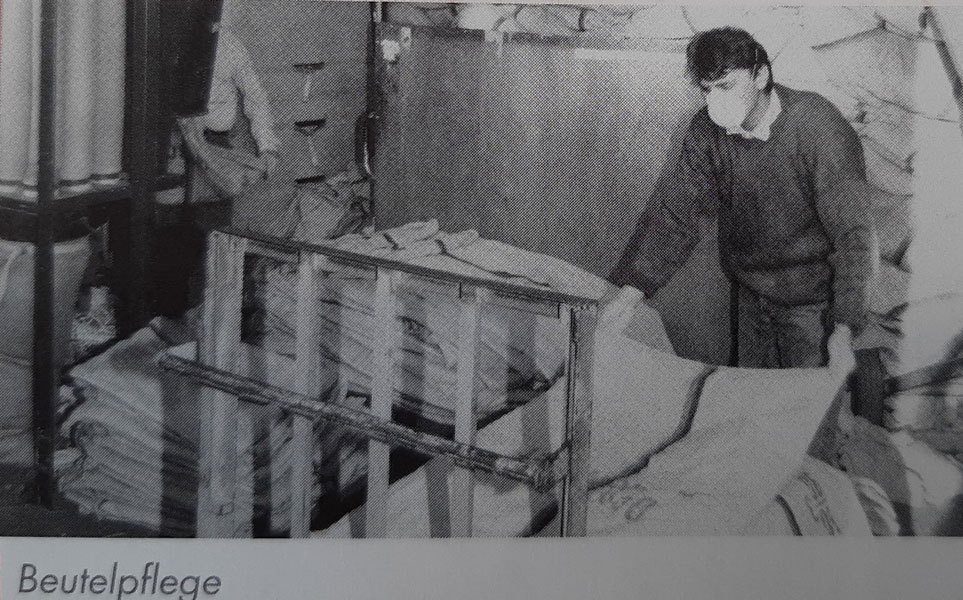
During the 70s the management of DOSAFA had to realize that they could no longer guarantee the existence of the company by focusing exclusively on the product of packaging sacks alone. New ideas were needed, the overall trading range as well as packaging were expanded. Products such as nets, tarps, foils, Big Bags, plastic sacks or tennis screens were introduced, which are still an important part of the product range until now.
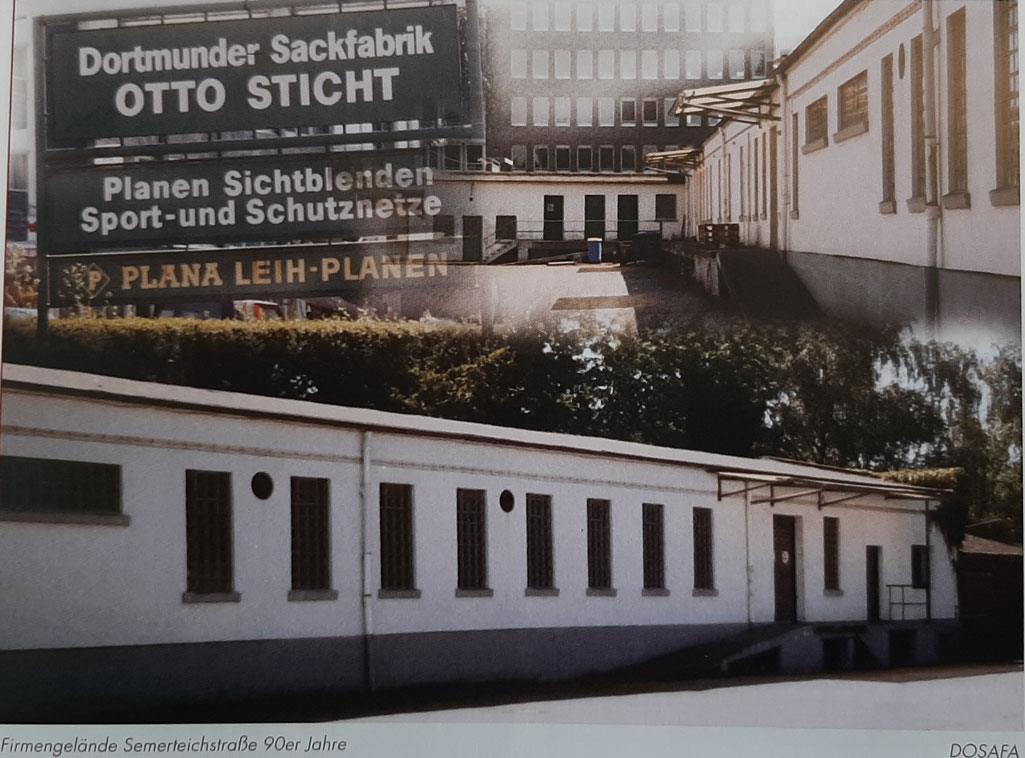
The 1990s were not a good time for the Dortmunder Sackfabrik. First it was the fact, that the now called Deutsche Post was no longer relied on the services of the company to maintain the postal bags and thus an important trading partner was suddenly not there anymore. Unfortunately, this resulted in downsizing the companies’ production staff to a half. About 30 people lost their jobs in this time. The situation was made more complicated due to the death of Ms. Dorothea Hoffmann in 1998.
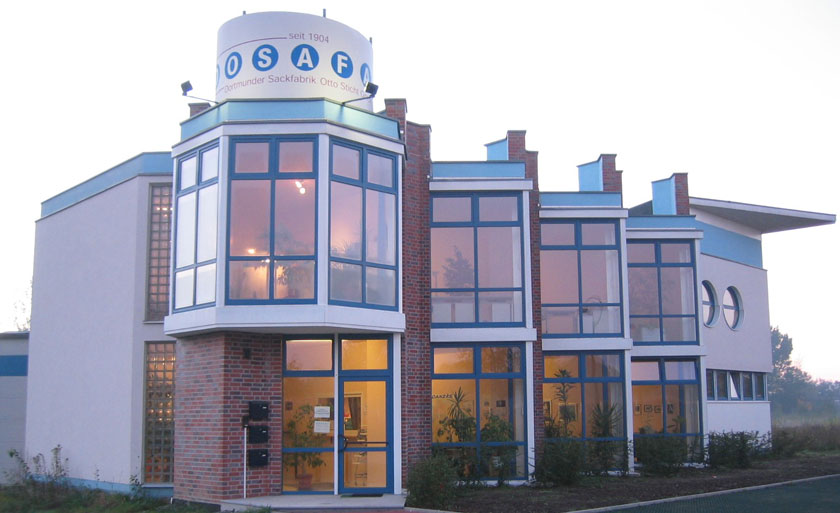
Despite the setbacks over the past years, a touch of optimism spread around the turn of the millennium. From 1999, the owner of the DOSAFA has been handed over to 5th generation, Mr. Horst-Dieter Jankus. Mr. Jankus decided to expand and continuously improve the wet and dry filtration section. The decision resulted in the need of a larger production very soon. For this reason, the DOSAFA began the construction of a new production hall on former mining site “Minister Stein”. This was necessary, to meet the requirements of the new decade and its new products. Since 2002 the DOSAFA is located in “Minister-Stein-Alle” in Dortmund.

